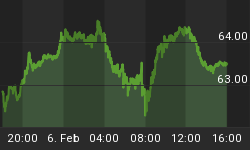New York artist Stephen Green's latest painting, DemandedDislocation, combines current affairs irony with a deeply sad vision of the future. Note the workers protesting for higher wages in front of the discount robots store.

Green's point is that two big trends are intersecting:
- The push by workers for their fair share of record corporate profits, in the form of a higher minimum wage and better pay for jobs a rung or two up on the income ladder.
- Breakthroughs in robotics that make it possible to automate a whole range of service and factory work. See The burger flipping robot that could put fast food workers out of a job and Meet the robots shipping your Amazon order.
A cynic might observe that trend number 2 appears to explain why trend number 1 is proceeding so smoothly. In the past year a growing number of cities and states have raised their minimum wage while corporations like McDonald's and Wal-Mart have begun paying their people more. That they're doing so without much of a fight would be suspicious if they didn't have an angle. Now we see what it is:
Corporations seem be running the numbers on the latest generation of robots and finding that they don't profitably replace $7-an-hour workers. But raise the prevailing wage to $10 or $15 and suddenly it becomes justifiable (actually mandatory from a profit-maximization standpoint) to replace millions of unpredictable, argumentative, messy humans with low-maintenance, tireless, ever-improving mechanical slaves. It's a fantasy not out of industrial capitalism but of feudalism, with robots as serfs and human workers no longer part of the equation.
And automation isn't stopping at repetitive service/factory work. Artificial intelligence has progressed to the point where a whole range of knowledge work can be handed off to algorithms. Money management, legal services, medical diagnostics and many, many other symbol manipulation jobs are now threatened with accelerating extinction. And forget about banking. A combination of crowdfunding and AI will vaporize most of that industry within a decade.
It's hard to view this trend with anything other than mixed feelings. Robots, AI and their cousins are extremely cool, and most fans of science and/or science fiction (that's everybody, right?) have been waiting for them since childhood. But combine a tidal wave of automation with the fact that most new US jobs are in vulnerable industries -- food, drink, office temp, transactional stuff like banking, etc. -- and it's hard to see where tomorrow's debt service payments will come from.















